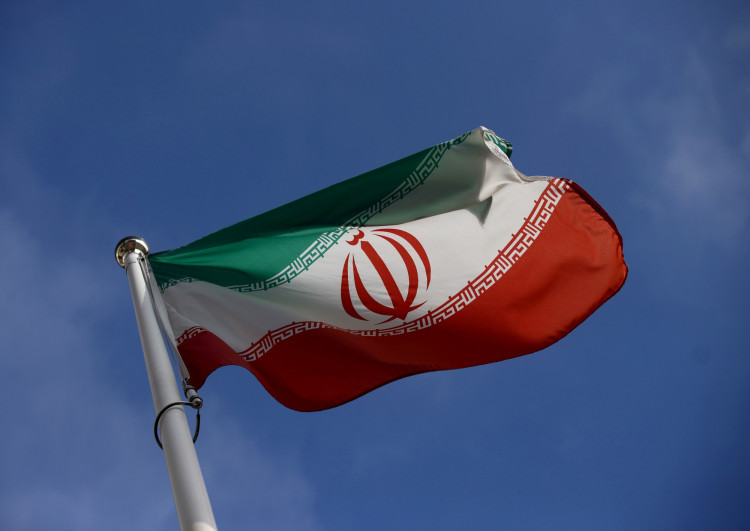As tensions rise in the Middle East, Gulf states have ramped up efforts to dissuade Israel from launching attacks on Iran's oil infrastructure, citing concerns that such actions could escalate into a broader conflict threatening their own oil facilities. According to three Gulf sources speaking to Reuters, nations including Saudi Arabia, the United Arab Emirates, and Qatar are lobbying the U.S. to intervene and discourage Israeli strikes that could provoke a retaliatory response from Tehran and its allies.
Gulf states are also blocking Israeli military access to their airspace, fearing that any support for Israeli operations could be viewed as an act of war by Iran. Ali Shihabi, a Saudi analyst close to the Saudi royal court, highlighted Tehran's warning to Saudi Arabia, stating, "If the Gulf states open up their airspace to Israel, that would be an act of war." The Iranian government has reportedly conveyed to Saudi leaders that Iran could not guarantee the safety of their oil facilities if Israeli planes were allowed to pass through.
In a series of high-stakes diplomatic moves, Iranian Foreign Minister Abbas Araqchi met with Saudi Crown Prince Mohammed bin Salman this week to discuss the growing threat of a regional conflict. Iran's diplomatic outreach comes amid concerns that Israel could target Iranian oil production facilities in retaliation for a recent missile attack attributed to Tehran. Israeli Defense Minister Yoav Gallant has vowed that any Israeli response would be "lethal, precise, and above all-surprising."
The Gulf nations, which have sought to de-escalate tensions with Iran in recent years, are acutely aware of the risks posed by a confrontation between Israel and Iran. They remember the significant disruption caused by a 2019 attack on Saudi Arabia's Aramco oil fields, which temporarily shut down over 5% of global oil supply. Despite recent rapprochements, trust issues persist between Iran and its Gulf neighbors, and the possibility of oil facilities becoming targets again looms large.
As part of their strategy to contain the conflict, Gulf states have made it clear to Washington that their airspace will not be used for Israeli strikes. Instead, they are urging diplomatic solutions to prevent the situation from spiraling into a full-blown regional war. With oil prices already volatile, any significant disruption to Middle Eastern oil supplies could send shockwaves through global markets, particularly if major facilities in Saudi Arabia or the UAE come under fire.
Analysts suggest that Israel could still route its strikes through alternative airspaces, such as Jordan or Iraq, or even employ mid-air refueling techniques to bypass Gulf airspace altogether. Nevertheless, the Gulf states' unified stance signals their determination to avoid being entangled in the military conflict. "We will be in the middle of a missile war," a Gulf source told Reuters, emphasizing the stakes involved if Israel were to target Iran's oil infrastructure.
Concerns are not limited to the Gulf. The impact of a potential oil disruption could have global ramifications, particularly for China, which is Iran's largest oil customer. China imports approximately 90% of Iran's oil exports, and any reduction in supply could lead to higher global energy prices, impacting economies worldwide. While China could potentially replace lost Iranian oil with supplies from Russia, Saudi Arabia, or Angola, the geopolitical ripple effects would be significant.
Moreover, the prospect of Israel targeting Iranian oil facilities has raised alarm bells in the U.S., where President Joe Biden has reportedly urged Israeli Prime Minister Benjamin Netanyahu to consider alternatives to attacking energy sites. The stakes are high, not just for Middle Eastern stability but also for the global oil market, which could face severe disruptions if the situation escalates. Oil prices have already seen upward pressure, with Brent crude surpassing $80 per barrel amid fears of conflict.
Israel's decision-making is still in flux, with senior officials stating that no definitive move has been made regarding a strike on Iran's oilfields. However, Israeli leaders are weighing their options, mindful of the strategic implications of targeting such a critical economic asset. "Our strike will be lethal, precise, and above all-surprising," said Israeli Defense Minister Yoav Gallant, hinting at a calibrated approach that aims to catch Iran off-guard.
The potential fallout from a direct Israeli attack on Iranian oil infrastructure extends beyond the Middle East. Analysts warn that any disruption to the Strait of Hormuz-a crucial maritime route for global oil shipments-could trigger a severe energy crisis. Roughly 20% of global crude exports pass through the strait, and any blockage could lead to a dramatic spike in oil prices, severely impacting the global economy.






